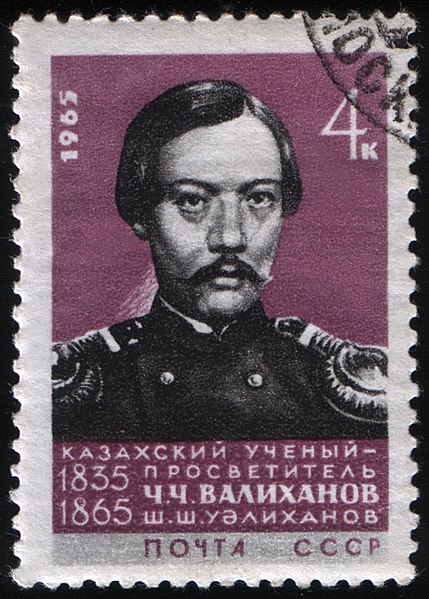Kazakhstan 10 Tenge 1993
Front: Bust of Shoqan Valikhanov Walikhanuli (1835-1865)
Back: Mount Okzhetpes in Borovoye
Shoqan Shynghysuly Walikhanov given name Muhammed Qanafiya (November 1835 — April 10, 1865) was a Kazakh scholar, ethnographer, historian and participant of The Great Game. He is regarded as the father of modern Kazakh historiography and ethnography. The Kazakh Academy of Sciences is named after him. His name is written Shoqan Walikhanov in English based on the transliteration of the Russian spelling of his name, which he used himself. The Kazakh language variant of his name was written in the Arabic script, and was similar to the Russian version. His work combined military intelligence and geographic exploration. His first successful expedition was his 1855-56 mission to the region of Issyq Köl. He was afterwards called to the capital in St. Petersburg in 1857 to report, and there he was elected to the Russian Geographical Society. Read more
Portrait of Shoqan Walikhanov made in St. Petersburg by I. A. Kardovsky
Shoqan Walikhanov on a 1965 Soviet commemorative stamp.






.JPG/411px-P1030419_-_Copie_(2).JPG)
